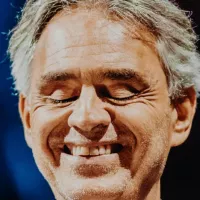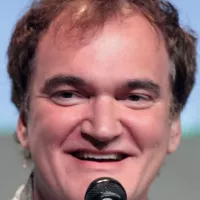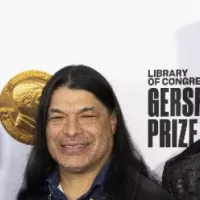Ennio Morricone was a highly prolific and influential Italian composer, orchestrator, conductor, trumpeter, and pianist. He composed over 400 film and television scores and more than 100 classical works, demonstrating versatility across various musical styles. Celebrated as one of the greatest film composers, Morricone's work earned him numerous prestigious awards, including two Academy Awards, multiple Grammy Awards, Golden Globes, BAFTAs, and other accolades from European film organizations. His significant contribution to cinema and music has solidified his legacy as a master of film scoring.
1928: Introduction of the Academy Honorary Award
Since its introduction in 1928, Ennio Morricone and Alex North are the only composers to receive the Academy Honorary Award.
1950: Met Maria Travia
In 1950, Ennio Morricone met Maria Travia, who would later become his wife.
October 1956: Marriage to Maria Travia
On October 13, 1956, Ennio Morricone married Maria Travia, whom he had met in 1950. They remained married for 63 years until his death. Maria Travia wrote lyrics for some of Ennio's works, including the Latin texts for The Mission.
1957: Birth of son Marco
In 1957, Ennio Morricone and Maria Travia had their first child, Marco.
1961: Birth of daughter Alessandra
In 1961, Ennio Morricone and Maria Travia had their second child, Alessandra.
1964: Birth of son Andrea
In 1964, Ennio Morricone and Maria Travia had their third child, Andrea, who would become a conductor and film composer.
1964: Wins Prize in Chess Tournament
In 1964, Ennio Morricone won a prize in the third category for amateurs at his first official chess tournament.
1966: Birth of son Giovanni
In 1966, Ennio Morricone and Maria Travia had their fourth child, Giovanni, who became a filmmaker.
1966: Release of The Good, the Bad and the Ugly
In 1966, the movie The Good, the Bad and the Ugly was released. The score was composed by Ennio Morricone and inducted into the Grammy Hall of Fame in 2009.
1971: "Targa d'Oro" Received
In 1971, Ennio Morricone received a "Targa d'Oro" for worldwide sales of 22 million records.
1971: First Golden Record
In 1971, Ennio Morricone received his first golden record (disco d'oro) for the sale of 1,000,000 records in Italy and a "Targa d'Oro" for the worldwide sales of 22 million records.
1978: Days of Heaven release
In 1978, the movie Days of Heaven was released. It featured the score composed by Ennio Morricone, which earned him his first Academy Award nomination in 1979.
1979: First Academy Award Nomination
In 1979, Ennio Morricone received his first Academy Award nomination for the score to Days of Heaven.
September 1984: Conducts Orchestre national des Pays de la Loire at Cinésymphonie '84 in Paris
In September 1984, Ennio Morricone conducted the Orchestre national des Pays de la Loire at Cinésymphonie '84 in the Salle Pleyel in Paris, performing his famous compositions like Metti una sera a cena, Novecento and The Good, the Bad and the Ugly. Michel Legrand and Georges Delerue also performed that evening.
1986: The Mission Soundtrack Certified Gold
In 1986, the soundtrack for The Mission was certified gold in the United States.
October 1987: Concert in Sportpaleis, Antwerp
In October 1987, Ennio Morricone performed a concert in front of 12,000 people in the Sportpaleis in Antwerp, Belgium, with the Dutch Metropole Orchestra and the Italian operatic soprano Alide Maria Salvetta. A live album of the concert was released the same year.
1987: Oscar nomination for The Untouchables
In 1987, Ennio Morricone received an Oscar nomination for his scores to The Untouchables.
1989: Polar Music Prize Founded
In 1989, the Polar Music Prize was founded by Stig Anderson, manager of Swedish pop group ABBA.
1991: Oscar nomination for Bugsy
In 1991, Ennio Morricone received an Oscar nomination for his score to Bugsy.
1994: Dissolution of Christian Democracy Party
In 1994, after the dissolution of the Christian Democracy (DC) party, Ennio Morricone approached the center-left coalition.
June 2000: Flanders International Film Festival Ghent Performance
On June 9, 2000, Ennio Morricone conducted his music at the Flanders International Film Festival Ghent with the National Orchestra of Belgium. The screening of The Life and Death of King Richard III (1912) was accompanied by live music, marking the first live performance of the score in Europe. The event occurred on the eve of Euro 2000.
2000: Oscar nomination for Malèna
In 2000, Ennio Morricone received an Oscar nomination for his score to Malèna.
2001: World Tour Begins
In 2001, Ennio Morricone embarked on a world tour with the Orchestra Roma Sinfonietta, sponsored by Giorgio Armani. The tour included performances in London, Paris, Verona, and Tokyo. As of 2001, Morricone had performed over 250 concerts.
2003: 75th Birthday Concerto, Royal Albert Hall
In 2003, Ennio Morricone performed his 75th birthday Concerto at the Royal Albert Hall in London with singer Dulce Pontes as part of his world tour.
2004: Performs at the Gasteig in Munich
In 2004, Ennio Morricone performed his classic film scores at the Gasteig in Munich.
2005: AFI's Top 25 of Best American Film Scores Nominations
In 2005, four film scores by Ennio Morricone were nominated by the American Film Institute for a place in the AFI's Top 25 of Best American Film Scores of All Time. His score for The Mission ranked 23rd.
February 2007: North American Concert Debut and United Nations Concert
In February 2007, Ennio Morricone made his North American concert debut at Radio City Music Hall in New York City on February 3rd. The previous evening, he presented a concert at the United Nations, featuring his film themes and the cantata Voci dal silenzio.
February 2007: Academy Honorary Award
In February 2007, Ennio Morricone received the Academy Honorary Award for his magnificent and multifaceted contributions to the art of film music.
2007: Founding Member of the Democratic Party (PD)
In 2007, Ennio Morricone became a founding member of the Democratic Party (PD) in Italy.
2007: Academy Honorary Award
In 2007, Ennio Morricone received the Academy Honorary Award "for his magnificent and multifaceted contributions to the art of film music".
2009: Grammy Hall of Fame Induction
In 2009, The Recording Academy inducted Ennio Morricone's score for The Good, the Bad, and the Ugly (1966) into the Grammy Hall of Fame.
2010: Polar Music Prize
In 2010, Ennio Morricone and Icelandic singer Björk won the Polar Music Prize, Sweden's biggest music award.
February 2012: Australian Concert Debut in Perth
On February 26, 2012, Ennio Morricone made his Australian concert debut, conducting the Western Australian Youth Orchestra and a 100-voice chorus at the Burswood Theatre in Perth.
March 2012: Conducts Adelaide Symphony Orchestra
On March 2, 2012, Ennio Morricone conducted the Adelaide Symphony Orchestra at Elder Park in Adelaide as part of the Adelaide Festival of Arts.
December 2012: Concert in Sportpaleis, Antwerp
On December 22, 2012, Ennio Morricone conducted the 85-piece Belgian orchestra "Orkest der Lage Landen" and a 100-piece choir during a two-hour concert in the Sportpaleis in Antwerp.
June 2014: US Tour Cancelled Due to Back Procedure
In June 2014, Ennio Morricone had to cancel a US tour in New York and Los Angeles due to a back procedure on February 20th. He subsequently postponed the rest of his world tour.
November 2014: Resumption of European Tour Announced
In November 2014, Ennio Morricone announced that he would resume his European tour starting in February 2015, along with Dulce Pontes.
February 2015: Resumption of European Tour
Starting in February 2015, Ennio Morricone resumed his European tour along with Dulce Pontes.
February 2016: Academy Award Win for The Hateful Eight
In February 2016, Ennio Morricone won his first competitive Academy Award for his score to The Hateful Eight, becoming the oldest person to win a competitive Oscar at the time.
2016: Academy Award for The Hateful Eight
In 2016, Ennio Morricone received his only competitive Academy Award for his score to Quentin Tarantino's film The Hateful Eight, becoming the oldest person ever to win a competitive Oscar at the time.
July 2020: Death at Age 91
On July 6, 2020, Ennio Morricone died at the Università Campus Bio-Medico in Rome, aged 91, due to complications from a femur fracture sustained in a fall. He was later entombed in Cimitero Laurentino.
Mentioned in this timeline

Pope Francis served as the head of the Catholic Church...

Andrea Bocelli is a renowned Italian tenor who rose to...

Sean Penn is a highly acclaimed American actor and film...

Clint Eastwood is an iconic American actor and film director...

Quentin Tarantino is a highly influential American filmmaker actor and...

Metallica formed in by James Hetfield and Lars Ulrich is...
Trending

22 minutes ago Iva Jovic triumphs over Rakhimova in Dubai, reveals Pegula observation.

22 minutes ago Andreeva vs. Cristian: WTA Dubai 2026 Prediction, Odds, and Match Preview.

22 minutes ago Mirra Andreeva embraces attention, aims Dubai title defense, draws inspiration from LeBron James.

1 hour ago Severe Thunderstorm Warning Issued for Central California; Funnel Clouds Possible, Gusty Showers Expected

1 hour ago Iva Jovic Observed Jessica Pegula; Jovic Wins in Dubai First Round.

1 hour ago Randy Fine faces censure and calls for resignation after anti-Muslim post.
Popular

Jesse Jackson is an American civil rights activist politician and...
Randall Adam Fine is an American politician a Republican who...

Pam Bondi is an American attorney lobbyist and politician currently...

Barack Obama the th U S President - was the...

Kid Rock born Robert James Ritchie is an American musician...

XXXTentacion born Jahseh Dwayne Ricardo Onfroy was a controversial yet...